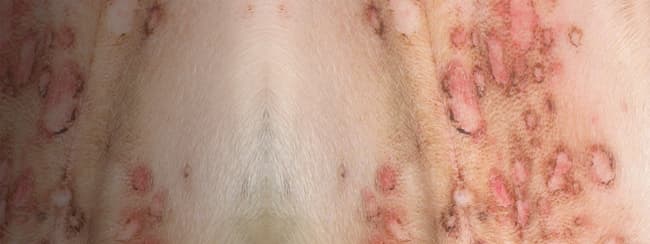Autoimmune disease in german shepherds is a condition that can affect any breed of dog but is most commonly seen in german shepherds. There are several types of autoimmune diseases, each with its own set of symptoms.

There are many different autoimmune diseases, and they all have different causes and symptoms. Treatment for autoimmune disease depends on the specific condition, but often includes medications and dietary changes. In this article, we will discuss the autoimmune disease in german shepherds, as well as its symptoms and treatment options.
What is Autoimmune Disease in German Shepherds?
Autoimmune disease in dogs is a condition in which the immune system becomes overactive and attacks healthy tissue, resulting in a wide range of autoimmune conditions. For German shepherds, autoimmune disease is most commonly seen in the skin and can cause painful lesions, blistering, and other symptoms.

There are several different types of autoimmune diseases that can affect German shepherds, including autoimmune skin disease, autoimmune thyroid disease, autoimmune hemolytic anemia, autoimmune liver disease, and several others. Also, know about Czech Shepherd breeders.
Causes of Autoimmune Disease in German Shepherds
If your dog has an autoimmune disease, there is likely an underlying cause that triggered the immune system to go into overdrive. In most cases, autoimmune diseases are caused by a combination of genetics and environmental factors. Possible causes include infections, exposure to certain chemicals or toxins, poor diet, stress, and more.
Here are some of the possible reasons for autoimmune disease in German shepherds:
- Genetic predisposition: This is a common cause of autoimmune disease, as certain genes may make dogs more susceptible to autoimmune conditions.
- Infections: Autoimmune diseases are often triggered by an infection or exposure to a pathogen.
- Exposure to chemicals or toxins: Exposure to certain chemicals can trigger autoimmune reactions and lead to autoimmune disease in some dogs.
- Poor diet or nutritional deficiencies: If your dog is not getting the right nutrients, this can sometimes contribute to autoimmune disease.
- Stress: Dogs are very sensitive to changes in their environment, and prolonged stress can sometimes trigger autoimmune reactions.
Symptoms of Autoimmune Disease in German Shepherds
The symptoms of autoimmune diseases can vary depending on the type, but common signs are:
- Painful or itchy lesions on the skin
- Blistering and open sores
- Fatigue and lethargy
- Weight loss
- Poor appetite or digestive issues
- Fever, rash, or other flu-like symptoms
Treatment for Autoimmune Disease in German Shepherds
The treatment for autoimmune diseases will depend on the specific condition, as well as its severity. Some common treatments include medications to suppress the immune system, dietary changes to manage inflammation and improve nutrient absorption, and other supportive therapies like acupuncture or massage. In most cases, autoimmune diseases can be managed effectively with medication and lifestyle changes.

If your dog is showing any of the symptoms of autoimmune disease, it is important to get them checked out by a veterinarian as soon as possible. Treatment will depend on the specific condition and its severity, so it is important to work closely with your vet to find the best course of action. With the right treatment, an autoimmune disease in German shepherds can be managed effectively, allowing your dog to live a happy, healthy life.
Read: Why do German Shepherds stand between your legs
Can German Shepherds Recover from Autoimmune Disease?
If your GSD is diagnosed with severe autoimmune disease, it is possible that they may not fully recover. In most cases, the autoimmune disease can lead to chronic, lifelong symptoms that need to be managed carefully. However, with proper treatment and support from you and your vet, autoimmune diseases can often be successfully treated and managed. With the right care and management, your German shepherd may be able to manage its autoimmune disease long-term and continue living a happy, healthy life.
Conclusion
That was all about autoimmune disease in German shepherds, including its causes, symptoms, and treatment options. If your dog has been diagnosed with an autoimmune disease, it is important to work closely with your vet. With the right care and support, it is possible for German shepherds to recover from autoimmune disease and live happy healthy lives. Stay tuned to Germanshepherdss.com for more useful guides.
